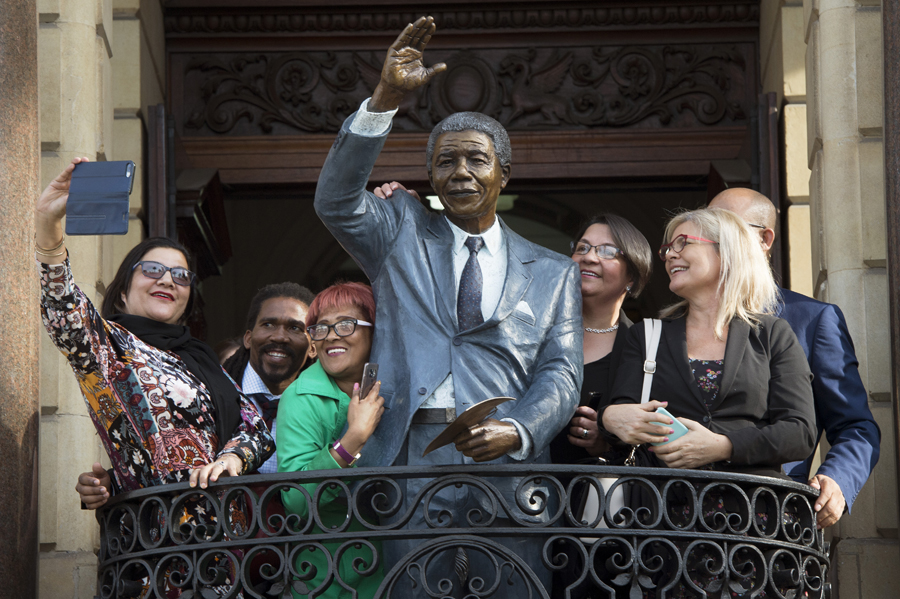Mandela spirit needed to build better societies, more equal world


As I was doing interviews in Johannesburg for the 10th BRICS Summit, I met Wesley Seale, a young man from South Africa who just returned from Beijing Foreign Studies University.
Seale said he chatted with a taxi driver as he was headed to Beijing Capital International Airport to take a flight home. The driver asked him where he was from.
When Seale said South Africa, the driver excitedly shouted, "Mandela! Mandela!"
Seale told me that at that moment, he understood what a people-to-people relationship is all about.
Nelson Mandela, the first South African president elected by the multiracial electorate, whose appeal extended beyond the boundaries of race, class, gender and nationality, "was able to bridge the divide" between him and the Chinese driver, Seale said.
On July 18, South Africa marked the centenary of the global statesman's birth as the country was gearing up to host the three-day BRICS summit this week.
Commemorative activities were held last week at Nelson Mandela Square in Sandton, Johannesburg, where a bronze, 6-meter-tall statute of the statesman stands.
I talked with local people-black and white, young and old, men and women-and they all revered the global icon whose life was a long walk toward freedom and equality, peace and justice, thanks to his philosophy of reconciliation and forgiveness.
"A magnificent light of human spirit was carried by Madiba (another name for Mandela) to us all," a young woman said to me. "He had a gracious smile to match his heart."
"Nelson Mandela was not exactly a saint, but in some ways he was a man who chose to willingly and fully enter this torn world and carry high the torch for justice," she said.
The Mandela spirit is rooted in South Africa, yet it belongs to the whole human race. Its dynamism and strong personal influence continue to illuminate the world.
Former US president Barack Obama hailed Mandela as "one of the history's true giants" when he addressed the 2018 Nelson Mandela Annual Lecture in Johannesburg last week. Obama said Mandela came to embody the universal aspirations of dispossessed people all around the world, their hopes for a better life and the possibility of a moral transformation in the conduct of human affairs.
I believe today's world needs the Mandela spirit more than ever.
As the 10th BRICS Summit is held in South Africa, the spotlight is on ways the group can deliver more benefits to the people of Africa in line with the Mandela spirit of building a just and equitable international order.
The summit comes at a time of extraordinary global political and economic challenges due to the rise of unilateralism, protectionism and deglobalization.
Mandela taught that some principles are universal, and the most important one is that we are bound together by our common humanity. Despite differences, we should treat each other with care and respect.
We face common challenges like climate change and security threats. We need to work together to uphold open economies, inclusive growth and win-win cooperation.
The BRICS' spirit is highly consistent with the Mandela spirit.
That's why I have high expectations that the BRICS countries-Brazil, Russia, India, China and South Africa-will reach consensus in Johannesburg to safeguard the rule-based multilateral international trade system and use a unified voice to push for reform of the global governance system.
I believe everybody deserves a better life. To embrace a better life in a better world, we have to follow Mandela's example of persistence and hope.
































